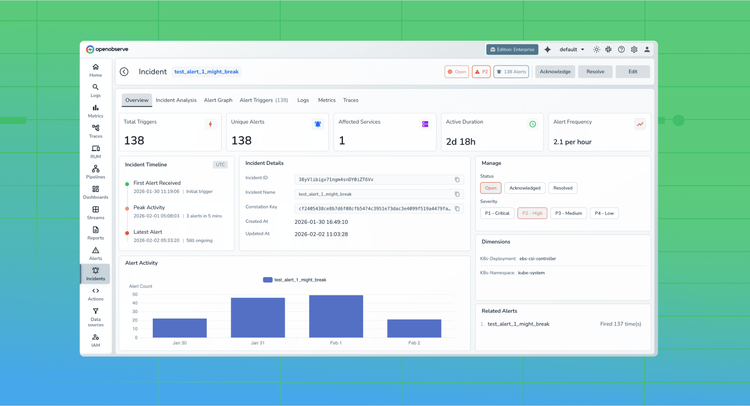Resources to learn, grow with, and master OpenObserve
Webinars and Videos
Explore our on-demand webinars and videos.
Webinar
Getting Started with OpenObserve Upcoming
February 26, 2026
Simran KumariDeveloper Advocate
Webinar
OpenObserve's SRE Agent: AI-Powered Root Cause Analysis for Distributed Systems Upcoming
February 25, 2026

Shraddha Kishan TripathiBackend Engineer

Manas SharmaDeveloper Advocate
1 hour
Filter, Transform, Route: Optimize with OpenObserve Pipelines On-demand
January 28, 2026

Uddhav DaveBackend Engineer

Simran KumariDeveloper Advocate
Customer Stories
See how customers are transforming their observability with OpenObserve.
How Stonal Accelerated Issue Diagnosis and Met European Compliance Standards while Decreasing Observability Costs with OpenObserve
How Stonal's team went from observability budget headaches to full-stack observability with predictable costs and European data residency using OpenObserve.

How Evereve Eliminated Monitoring Constraints, Reduced Costs by > 90%, and Unified Observability Across Teams with OpenObserve
An observability customer story showcasing how a brick-and-mortar and e-commerce fashion brand consolidated observability tools while drastically reducing their TCO.
How Avatar Achieved SOC 2 Compliance, Improved Uptime, and Saved Costs with OpenObserve
Avatar achieved SOC 2 compliance, improved uptime to 99.99%, and saved 60% on observability costs with OpenObserve's unified monitoring platform.

